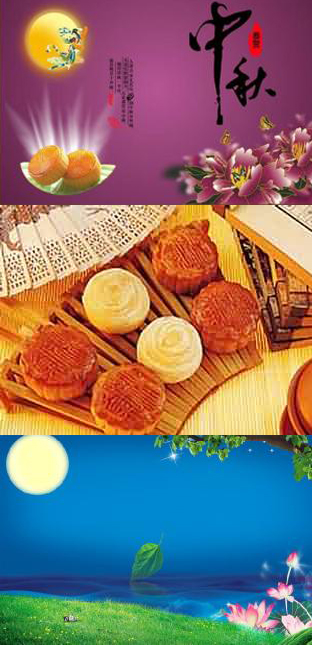Mid-Autumn Festival

几处笙歌留朗月,万家箫管乐中秋。
The sound of flutes and singing is accompanied by the brightest moon, and every household plays music on the night of the Mid-Autumn Festival.
This proverb highlights the revelry and pleasant atmosphere that accompanies the Mid-Autumn festival, while emphasizing the key roles of the moon and music.
中天一轮满,秋野万里香
A shape of completeness is in the sky, the smell of autumn harvest is in the air.
The proverb is a typical example of cangtoushi (藏头诗), a form of Chinese poem which expresses a word or a meaning by putting together the first word of every line. The first characters of these two lines are zhongqiu, which mean Mid-Autumn Festival. It doesn’t include the word “moon,” but readers can discern that it is describing the moon. So the proverb means that the moon on the night of Mid-Autumn Festival is at its fullest. Also, the festival coincides with the period when crops are reaped.
但愿人长久,千里共婵娟
May we all be blessed and stay healthy, sharing the graceful moonlight regardless of how far we are apart.
Ci is a type of classical Chinese poetry. These are two famous lines of Thinking of You, a ci poem written by poet Su Shi (1037-1101). The poet expresses hope that people he cares about can admire the beauty of the moon together. People often use the sentence to convey thoughts of love and good wishes to their family members, relatives and friends far away.
